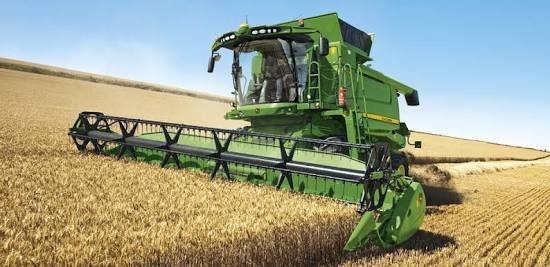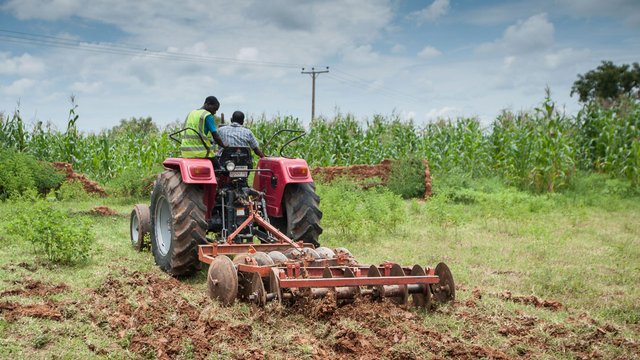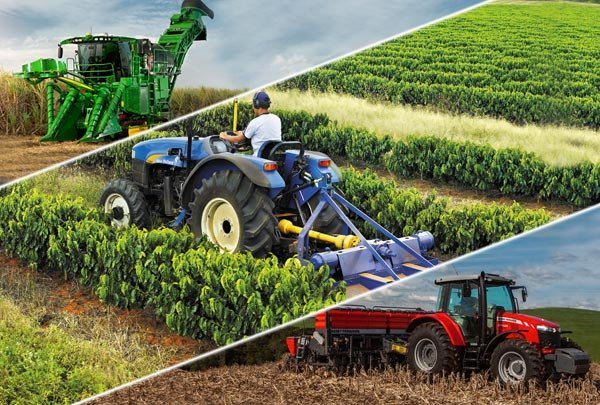PROBLEMS AND PROSPECTS OF FARM MECHANIZATION
MEANING OF AGRlCULTURAL MECHANISATION
Farm mechanisation is the application of engineering principles and technology in agricultural production, storage and processing on the farm.
Farm mechanisation is applicable to land preparation, planting, fertilizer application, weeding and crop harvesting, rearing, caring and feeding of animals as well as processing and storage of farm produce, using appropriate farm machinery.
PROBLEMS OF AGRICULTURAL MECHANISATION
Land tenure system: The type of land tenure system (communual) does not allow for large farm holdings suitable for mechanisation.
Scattered farm holdings: Scattered farm holdings are also not conducive or economical for mechanisation, especially in West Africa.
Poverty of farmers: Most farmers, especially in West Africa are very poor and cannot afford the cost of tractors and farm implements.
Inadequate facilities (machinery): The facilities or machinery for fabricating and repairing farm implements are grossly insufficient where they are available.
Bad topography: The topography of most West African landscape is too rough and unconducive for farm mechanisation.
Varied soil types: Soil types are extremely varied and the machines to use on them have not been developed locally. West African countries, Nigeria for instance, still depend on imported machinery which is not too suitable for our soil.
Inadequate spare parts: Availability of spare parts is amaj or problem as these parts are still being imported.
Inadequate technical manpower: Available technical manpower to operate or service the implements and machines is not adequate.
Problems of stumps and logs: During clearing, heavy stumps and logs are usually left behind, and they constitute additional problems in mechanisation.
ADVANTAGES OF AGRICULTURAL MECHANIZATION
Farm mechanisation has the following advantages:
(i) Timeliness of operation: Farm mechanisation ensures that all farm Operations are done and completed within a short period of time.
(ii) It saves labour: In farm mechanisation, most human efforts are substituted with machines. Hence, labour saved could be employed elsewhere.
(iii) It reduces health hazards: Farm mechanisation reduces health hazards. These include those posed by knives, hoe, stumps, pest, etc.
(iv) It reduces drudgery: Farm mechanisation makes it easy to avoid unpleasant manual jobs.
(v) Increase in farm revenue: As a result of mechanisation, farmers become richer due to high yield.
(vi) It encourages large scale farming: Farmers are capable of working on large farms and, hence, reap heavy harvest.
(vii) Increase in output: Mechanisation makes it possible for farmers to have increase in output (production, harvest or yield).
(viii) It promotes specialisation of labour: 211Farm mechanisation enables people to become specialised in certain operations within the farm.
(ix) Co-operation among farmers: Mechanisation enables many farmers to come together and pool their resources together, thereby promoting or encouraging coODeration among farmers.
(x) It saves time: Mechanization translates quickly the products of man's brain into reality.
(xi) Reduction in cost of operation: Mechanisation leads to reduction in the cost of agricultural operation per unit output.
DISADVANTAGES OF AGRICULTURAL MECHANISATION
Farm mechanisation has the following disadvantages:
(i) High cost: Farm mechanisation, due to the numerous machines involved usually expensive to operate.
(ii) Displacement of workers: In farm mechanisation, very few workers are required; hence, many people will be out of job when mechanisation is introduced.
(iii) Compaction of soil: Mechanisation leads to compaction of soil due to the movement of heavy machines.
(iv) It causes environmental pollution: Mechanisation causes environ-mental pollution due to smokes emanating from machines, chemicals and fertilizer usage.
(v) Degradation of landscape: Mechani-sation ensures the degradation of landscape as a result of continuous excarvation. .
(vi) Land tenure system: Land tenure system may hinder efficient use of tractors due to small holdings of farmlands.
(vii) Destruction of soil structure: The soil structure can easily be destroyed due to continuous movements and usage of machines.
(viii) Redundancy of farm labour: With farm machines working on the farm, the work can easily be completed and this situation can create redundancy in farm labour.
(ix) Few crops can be mechanised: Very few crops like maize, rice, guinea corn, millet, etc. can easily be mechanised.
(x) Inadequate technical know-how: There is always inadequate technical know-how on the use and handling of the farm machines and equipment.
.jpg)



.jpg)
.jpg)
.jpg)
If you want to stay closer to the nature check it https://farmguests.com/